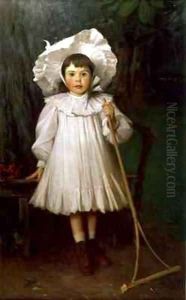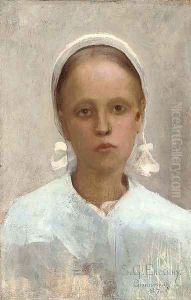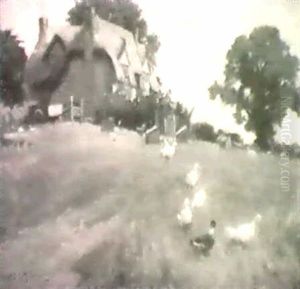Samuel G. Enderby Paintings
Samuel G. Enderby was not an artist in the traditional sense of painters or sculptors but a prominent figure in the whaling industry and maritime trade of the 18th century. Born in 1719, Enderby's life was deeply intertwined with the sea and the burgeoning British Empire's global trade networks. He was a key player in the development of the Southern Ocean whaling industry, an enterprise that had far-reaching implications for global commerce, navigation, and even the arts, through the intricate scrimshaw crafted by sailors.
Enderby's contributions to maritime history were manifold. He founded Samuel Enderby & Sons, a family firm that became one of the leading whaling companies in England. Under his guidance, the company pioneered the exploitation of whaling grounds in the Pacific and Antarctic waters, pushing the boundaries of known geography and contributing to the naval knowledge of the time. Enderby ships were part of the first fleet to whale in the Southern Ocean and were instrumental in discovering new whaling territories, which were crucial for the industry's growth.
Beyond his direct contributions to the whaling industry, Enderby's influence extended to the realms of exploration and science. His company's ships were involved in some of the earliest expeditions to the Antarctic, helping to chart unexplored territories. The Enderby Settlement on the Auckland Islands was established as a base for the company's whaling operations in the Southern Ocean, marking one of the early instances of British presence in the Antarctic regions.
Samuel G. Enderby's legacy is a complex one, reflective of the era's navigational achievements and the environmental impact of whaling. He died in 1797, leaving behind a legacy intertwined with the history of maritime exploration, the whaling industry, and the British Empire's expansionist endeavors. His contributions to maritime history and the economic development of the whaling industry are remembered, even as the ethical dimensions of whaling itself are critically re-evaluated.


